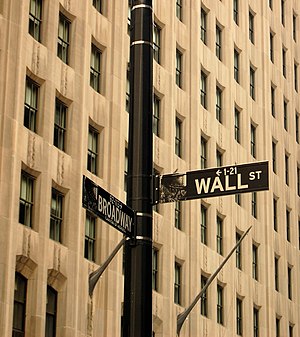
Image via Wikipedia
"Because of this law, the American people will never again be asked to foot the bill for Wall Street's mistakes," Obama boomed at the schmaltzy signing ceremony, amid bursts of applause.
"These reforms will put a stop to a lot of the bad loans that fuelled this debt-based bubble," the President gushed to America and the rest of the world. "This bill also empowers the strongest consumer financial protections in history."
It would be reassuring if we could agree with Obama, concluding that Dodd-Frank will help to prevent the next systemic crisis and associated bail-out of "too-big-to-fail" banks. Reassuring, but wrong.
For despite some marginal regulatory improvements, this is no Rooseveltian legislative milestone. Amid the hype and back-slapping of last week's launch, the sad reality is that Dodd-Frank fails to address the fundamental problems that resulted in the sub-prime fiasco and the related damage to not just America, but the entire global economy.
The inherent feebleness of this door-stopping bundle of statute and its lack of desperately needed substance, was brilliantly captured by Laurence Kotlikoff, a highly-respected professor of economics at Boston University. "This law is like being invited to dinner and served pictures of food," Kotlikoff remarked.
It would be tempting to smile at such a wry observation if the situation it described wasn't so depressing. For what the US political establishment's non-response to the credit crunch illustrates is this: such is the lobbying power of the big Wall Street institutions that they not only caused a global economic crisis and then forced the US government to pay for a massive bail-out, but then used a slice of that bail-out cash to bribe politicians with campaign donations in order to block rule changes that might prevent a repeat performance.
Obama signs a bill that lets banks have US over a barrel once more

No comments:
Post a Comment